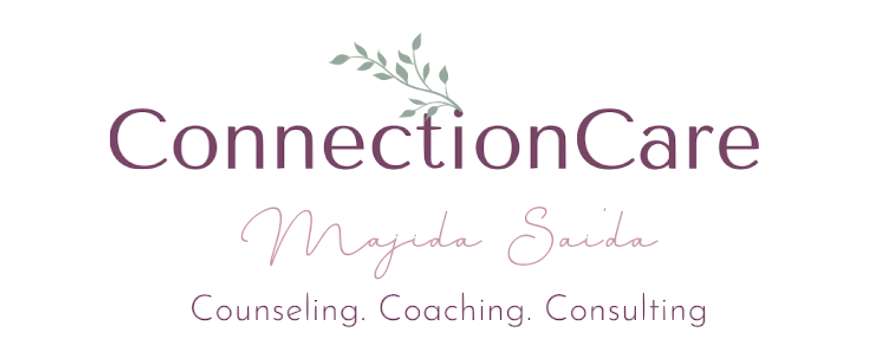Of all the challenges faced during the menstrual cycle, premenstrual syndrome (PMS) is often one of the most difficult to manage. The term “PMS” serves as an umbrella phrase, leading to confusion as it encompasses a wide range of physical and emotional symptoms. These symptoms can be overwhelming and significantly affect one’s quality of life. Despite its portrayal in society as something all women must endure and often as the subject of jokes and inappropriate comments, it doesn’t have to be this way. Body literacy can be incredibly empowering for those navigating PMS.
In this article, we will explore the various causes of PMS, common symptoms, and lifestyle and dietary changes that may provide relief. We’ll also discuss natural remedies, over-the-counter medications, and prescription options for PMS management. Join us as we explore the many ways women can take control of their menstrual health and find relief from PMS symptoms.
Understanding PMS

Premenstrual syndrome (PMS) is something many menstruating women experience. It comes with a mix of physical, emotional, and behavioral symptoms that pop up in the days or weeks before your period. PMS can really put a damper on your quality of life and daily activities, so understanding and managing it is key.
We don’t know all the ins and outs of what causes PMS, but there are a few things that might contribute. Hormonal fluctuations, genetics, and lifestyle factors like stress, diet, and exercise, can all play a role. Changes in estrogen and progesterone levels are thought to be significant contributors to those pesky PMS symptoms.
PMS can show up in a variety of ways. You might experience physical symptoms like bloating, breast tenderness, headaches, or emotional and behavioral symptoms such as mood swings, irritability, and anxiety. Sleep disturbances, fatigue, and food cravings are also common.
One helpful way to get a handle on PMS is to track your symptoms. Keeping a menstrual cycle calendar or using a fertility awareness-based method, like the sympto-thermal method, can help you spot patterns and changes. With this info, you can create a personalized plan to manage your PMS.
Lifestyle changes can also make a big difference. Regular exercise, a balanced diet, stress management techniques, and getting enough sleep can all help reduce symptoms. Sometimes, a healthcare provider may recommend supplements or medications to give you extra support.
By understanding the causes and symptoms of PMS and taking proactive steps to manage them, you can significantly improve your quality of life and navigate the challenges of menstruation with more ease.
Top symptoms of PMS:
- Mood swings
- Fatigue
- Bloating
- Breast tenderness
- Headaches
- Cramps
- Acne
- Food cravings
- Insomnia
- Anxiety
- Depression
- Irritability
- Joint pain
- Constipation or diarrhea
- Changes in libido
- Muscle aches
- Skin irritation
It’s important to note that not all women experience all of these symptoms, and some may have additional symptoms not listed here. Symptoms can also vary in severity from mild to severe.
When it comes to finding relief from PMS symptoms, making lifestyle changes is a tried and true effective strategy. While PMS can be uncomfortable and disruptive, there are a variety of natural remedies that may help to alleviate symptoms. Let’s explore some lifestyle changes that may bring significant relief and, therefore, improve your quality of life.
Lifestyle Changes for PMS Relief
Making healthy lifestyle changes can have a significant impact on managing PMS symptoms. It’s important to remember that there’s no one-size-fits-all solution. Incorporating certain habits can help alleviate some of the discomfort and distress caused by PMS, and it’s about finding what works best for you.
Here are some lifestyle changes that may help with PMS relief:
- Diet Changes: Eating a healthy and balanced diet is crucial for managing PMS symptoms. It is recommended to include a variety of nutrient-dense foods such as whole grains, fruits, vegetables, and lean proteins in the diet. It is also essential to reduce the consumption of processed foods, caffeine, alcohol, and salty foods, as they may exacerbate PMS symptoms.
- Exercise and Physical Activity: Regular exercise and physical activity can help manage PMS symptoms such as fatigue, bloating, and mood changes. Incorporating moderate-intensity exercises such as brisk walking, cycling, or swimming for at least 30 minutes a day, five days a week, can help improve physical and mental well-being.
- Stress Management: Stress is a common trigger for PMS symptoms. Practicing stress-reducing techniques such as deep breathing, yoga, meditation, or journaling can help manage PMS symptoms. Identifying stress triggers and finding healthy ways to cope with them is important.
- Sleep Hygiene: Getting enough quality sleep is essential for managing PMS symptoms such as mood changes and fatigue. Maintaining a consistent sleep schedule, creating a comfortable sleep environment, and avoiding screens before bedtime can help improve sleep quality.
Incorporating these lifestyle changes can be beneficial in managing PMS symptoms. However, consulting with a qualified practitioner before making any significant dietary or exercise changes is crucial. They can offer guidance on the best approach for each individual case.
Now that we’ve discussed the importance of lifestyle changes in managing PMS symptoms, let’s explore some natural supplements and herbal remedies that may support your body in finding relief. By incorporating certain supplements and herbs into your routine, you can provide your body with additional nutrients and compounds that may help alleviate some of the most common PMS symptoms.
Supplements and Herbal Remedies for PMS Relief
Of the many ways to alleviate PMS symptoms, supplements and herbal remedies are among the most popular options.
Here’s a quick overview of some of the most effective natural remedies:
- Calcium & magnesium: These minerals are essential for muscle and nerve function and can help reduce cramps and mood swings. They can be found in leafy green vegetables, nuts, seeds, and dairy products. If you need more from your diet, supplementing these nutrients may be helpful.
- Vitamin B6: This vitamin plays a crucial role in the production of serotonin, a neurotransmitter that helps regulate mood. Studies have found that taking B6 supplements can reduce PMS symptoms like bloating, irritability, and breast tenderness.
- Omega-3 fatty acids: Found in fish, nuts, and seeds, omega-3s have been shown to reduce inflammation and improve mood. Taking fish oil supplements or incorporating more omega-3-rich foods into your diet may help ease PMS symptoms.
- Herbal remedies: Several herbs have been traditionally used to treat PMS, including chasteberry, evening primrose oil, black cohosh, and ginger. Chasteberry is thought to help balance hormones, while evening primrose oil is believed to relieve breast tenderness and mood swings. Black cohosh has been shown to reduce hot flashes and night sweats, which can be PMS symptoms for some women. Ginger, on the other hand, has anti-inflammatory properties that may help relieve pain and discomfort.
As with any supplement or herbal remedy, it’s important to talk to your qualified provider before starting a new regimen. They can help you determine which supplements and herbs are safe and effective for you and recommend appropriate dosages.
Natural Supplements & Lifestyle Changes for PMS Support
| Name |
Brief Description |
How it Helps PMS |
How to Incorporate |
| Calcium & Magnesium |
These minerals can help alleviate PMS symptoms such as mood swings, cramps, and bloating. |
Calcium and magnesium work synergistically to relax muscles and reduce inflammation. |
Incorporate calcium-rich foods like leafy greens, dairy products, and fortified plant-based milks into your diet. Magnesium can be found in nuts, seeds, legumes, and whole grains. |
| Vitamin B6 |
This vitamin can help regulate serotonin levels in the brain, improving mood and reducing PMS symptoms such as irritability and depression. |
Vitamin B6 helps increase serotonin levels in the brain, improving mood and reducing PMS symptoms. |
Foods rich in vitamin B6 include poultry, fish, bananas, potatoes, and fortified breakfast cereals. |
| Omega-3 Fatty Acids |
Essential fatty acids may help reduce inflammation and alleviate PMS symptoms such as breast tenderness and cramps. |
Omega-3 fatty acids have anti-inflammatory properties that may reduce breast tenderness, cramps, and mood swings associated with PMS. |
Incorporate omega-3-rich foods such as fatty fish (salmon, mackerel, and sardines), flaxseeds, chia seeds, and walnuts into your diet. |
| Chasteberry |
This herbal remedy may help regulate hormones and alleviate PMS symptoms, including mood swings, breast tenderness, and headaches. |
Chasteberry helps balance levels of estrogen and progesterone, which can reduce breast tenderness, mood swings, and headaches associated with PMS. |
Chasteberry is available in supplement form and can be found via a supplement supplier. |
| Evening Primrose Oil |
This herbal remedy may help reduce breast tenderness, mood swings, and irritability associated with PMS. |
Evening primrose oil contains gamma-linolenic acid (GLA), which can reduce breast tenderness, mood swings, and irritability associated with PMS. |
Evening primrose oil is available in supplement form and can be found via a supplement supplier. |
| Black Cohosh |
This herbal remedy may help reduce hot flashes, night sweats, and mood swings associated with PMS. |
Black cohosh contains compounds that may mimic the effects of estrogen, which can reduce hot flashes, night sweats, and mood swings associated with PMS. |
Black cohosh is available in supplement form and can be found via a supplement supplier. |
| Ginger |
This herbal remedy may help alleviate nausea and vomiting associated with PMS. |
Ginger has anti-inflammatory and anti-nausea properties, which can alleviate nausea and vomiting associated with PMS. |
You can incorporate fresh or dried ginger into your diet by eating it as is or adding it to smoothies, stir-fries, or steeping it in hot water for tea. |
Please note that it’s important to consult a qualified provider before starting any new supplement or making significant lifestyle changes.
While natural remedies may be effective for managing PMS symptoms, they may not be enough for some women. In more severe cases, medical treatments may be useful. If you’re struggling with PMS symptoms, it’s important to be aware of all your treatment options. Let’s take a look at some of the most common medical treatments for PMS.
Medical Treatments for PMS Relief

Managing PMS symptoms can be challenging, and for some individuals, lifestyle changes and natural remedies may not provide enough relief. In these cases, medical treatments may be necessary to help manage symptoms.
Here are some common medical treatments used for PMS relief:
- Over-the-counter pain relievers: Nonsteroidal anti-inflammatory drugs (NSAIDs), including as ibuprofen and naproxen, may help relieve the physical pain associated with PMS, such as cramps and headaches. NSAIDs may come with side effects, such as gut health concerns, so do your due diligence prior to using them regularly.
- Hormonal birth control: Birth control pills, patches, and IUDs can help regulate hormones and reduce the severity of PMS symptoms. These methods prevent ovulation and, therefore, prevent the hormonal fluctuations that cause PMS symptoms. However, it’s important to note that hormonal birth control can have side effects and may not be the right choice for everyone.
- Antidepressants & anti-anxiety medications: Certain types of antidepressants and anti-anxiety medications may help reduce the severity of mood-related PMS symptoms, such as depression and anxiety. These medications may also help alleviate physical symptoms like breast tenderness. They can, however, come with certain side effects, so be sure to discuss full informed consent with your prescribing physician.
It’s important to note that while medical treatments can provide relief for PMS symptoms, they don’t address the root causes of PMS and may only mask symptoms temporarily. Additionally, some medical treatments, can have long-term effects on fertility and reproductive health.
Using over-the-counter pain relievers, hormonal birth control, and antidepressants or anti-anxiety medications as quick fixes for PMS can provide relief. However, they also carry potential risks that may affect reproductive, metabolic, and gut health. While these methods may sometimes be effective in managing symptoms, it’s essential to consider their long-term effects and consult a qualified professional to determine the best approach for your needs.
| Quick Fix |
Reproductive Health Issues |
Metabolic Health Issues |
Gut Health Issues |
| NSAIDs (e.g., ibuprofen) |
Potential impact on ovulation and menstrual cycle |
Increased risk of cardiovascular issues |
Can cause stomach ulcers, gastrointestinal bleeding |
| Hormonal Birth Control |
May suppress natural hormonal cycles, affect fertility |
Potential weight gain, insulin resistance |
Can disrupt gut microbiota, leading to dysbiosis |
| Antidepressants & Anti-anxiety Medications |
Potential impact on libido and sexual function |
Weight gain, metabolic syndrome risk |
Can cause gastrointestinal issues like nausea, constipation |
By understanding these potential issues, individuals can make more informed decisions about managing PMS and consider integrating lifestyle changes or natural remedies as part of a holistic approach to wellness.
Many find PMS support in holistic therapies. Therapies, such as acupuncture and hypnotherapy, may focus on the mind-body connection. Others may offer nutrition and functional medicine approaches. There are also those, like myself, who use both mind-body techniques alongside functional nutritional support to provide full spectrum, individualized care for those navigating hormone health concerns. In the next section, we’ll explore some of these alternative therapies for PMS relief.
Alternative Therapies for PMS Relief

If you’re looking for alternative therapies to manage PMS symptoms, there are several options available to you. These therapies can be used in conjunction with lifestyle changes, supplements, and medical treatments for a comprehensive approach to PMS relief.
Hypnotherapy
Hypnotherapy is one alternative therapy that has shown promise in managing PMS symptoms. It involves a guided trance-like state to help you access your subconscious and work through any emotional or psychological factors contributing to your PMS symptoms.
Functional Nutritional Therapy
Functional Nutritional Therapy is another option to consider. This involves working with a practitioner to create a personalized, individualized nutrition plan that addresses any nutrient-based deficiencies or imbalances that may be contributing to your PMS symptoms.
Reflexology & Acupuncture
Reflexology is a therapeutic practice where the practitioner uses pressure on specific points on the feet, hands, face, or ears that correspond to different organs and systems in the body. Reflexology can help alleviate PMS symptoms by improving circulation, reducing stress, and promoting relaxation. This practice can be particularly effective for relieving tension, reducing bloating, and enhancing overall well-being.
Similarly, acupuncture, a form of Traditional Chinese Medicine, utilizes thin needles and inserts them into specific points on the body. Acupuncture has been known to promote balance, health, and healing for a variety of conditions. It may be helpful for managing PMS symptoms such as cramps, mood swings, and headaches.
Massage therapy
Massage therapy is a hands-on therapy that may relieve muscle tension, reduce stress, and promote relaxation. It can be beneficial for managing PMS symptoms such as cramps and bloating.
Mind-body techniques
Mind-body techniques, including yoga and meditation, may also be helpful for managing PMS symptoms. These practices help reduce stress, promote relaxation, and improve overall well-being. These benefits may, in turn, help manage PMS symptoms.
While these alternative therapies are generally safe, if you are on medication or undergoing treatment, it’s important to speak with a healthcare practitioner before trying them to ensure they’re right for you and won’t interfere with any existing medical treatments.
If you’ve tried various alternative therapies for PMS relief but still experience disruptive symptoms, it may be time to seek medical attention. In the next section, we’ll discuss warning signs and red flags to look out for and when seeking professional medical advice is appropriate.
When to See a Doctor
When it comes to managing PMS symptoms, it’s essential to be aware of the red flags and warning signs that indicate a need to seek medical advice. While some, mild PMS symptoms are normal, there are times when symptoms can indicate an underlying condition that requires treatment.
Some warning signs of PMS to be aware of include severe or unusual symptoms, such as severe mood swings, depression, or anxiety that interfere with daily life. Other red flags include symptoms that occur outside of the typical menstrual cycle, such as bleeding between periods or after intercourse.
If you are experiencing any warning signs or red flags, it’s essential to seek medical advice from a healthcare professional and practitioners skilled in working with complex hormone health concerns. Your doctor may provide a proper diagnosis and recommend appropriate treatment options, including lifestyle changes, medical treatments, or alternative therapies.
If you’re experiencing disruptive PMS symptoms and want to explore more advanced treatments, working with a qualified practitioner can be helpful. In the next section, we’ll discuss the benefits of seeking professional guidance and how working with a functional medicine/nutrition and integrative hormone health specialist can support you in achieving your hormonal health and wellness goals.
For more information, check out our blog on PMDD…
Disruptive PMS Concerns: Working with a Qualified Practitioner
If you’re experiencing disruptive PMS symptoms, it’s vital to seek professional guidance from a qualified practitioner who can provide individualized and personalized care. While lifestyle changes, alternative therapies, and natural remedies may provide relief for many women, some may require additional support.
A functional medicine/nutrition and hormone health specialist can provide support in identifying the root causes of your PMS symptoms and develop a comprehensive treatment plan to support your hormonal health and fertility goals. As a functional nutrition and hormone health specialist, I can support you through dietary and lifestyle changes, targeted supplementation, and other modalities to balance your hormones and reduce PMS symptoms.
Working with a qualified practitioner can also help identify any underlying medical conditions to ensure you are supported appropriately. In some cases, prescription medications, which can only be prescribed by a medical professional, may be necessary to manage severe PMS symptoms. However, it’s essential to weigh the benefits and risks of these treatments and seek full informed consent, as they may mask symptoms without addressing the root causes of PMS and may have long-term effects on fertility.
I take a holistic approach to women’s health at my practice, addressing the physical, mental, and emotional factors that can impact hormonal balance and fertility. I offer a range of services, including fertility awareness education, integrative mental health therapy, hypnotherapy, and yoga therapy, to support women in achieving their health and fertility goals.
If you’re struggling with disruptive PMS symptoms, don’t hesitate to reach out to a qualified practitioner for guidance and support. Together, we can work towards a more balanced and symptom-free menstrual cycle.
A Note on Fertility Awareness Education & PMS

Fertility Awareness Education (FAE) is a powerful tool for anyone navigating the complexities of PMS. At its core, FAE involves understanding and tracking your menstrual cycle to gain insights into your overall reproductive health. By learning to recognize the patterns and changes in your body, you can identify the signs and symptoms of PMS more accurately and effectively.
One of the significant benefits of FAE is its ability to demystify the menstrual cycle. Many people experience a wide range of physical and emotional symptoms without fully understanding their causes or patterns. Through FAE, you can gain a clearer picture of how your body works, which can help you anticipate and manage PMS symptoms. This knowledge fosters a sense of control and empowerment, as you can make informed decisions about your health and well-being.
Tracking your cycle with FAE allows you to pinpoint specific phases when PMS symptoms are most likely to occur. This awareness can be instrumental in planning your activities and self-care routines, ensuring that you are better prepared to handle any discomfort. Additionally, FAE can help you identify any irregularities or changes in your cycle that may require further attention or medical consultation.
Moreover, FAE is not just about managing PMS; it’s about taking charge of your fertility and reproductive health. By understanding your cycle, you can make more informed choices about family planning, contraception, and overall health. Whether you are looking to conceive or avoid pregnancy, FAE provides a natural and effective method to achieve your goals.
At Connection Care Therapy, I am committed to supporting individuals in learning FAE to take charge of their fertility and reproductive health. Through personalized sessions, I offer guidance and education tailored to your unique needs, helping you navigate PMS and other menstrual health challenges with confidence and clarity. Together, we can work towards a deeper understanding of your body and a more empowered approach to your health.
Key Points & Conclusion
As you can see, there are many options available to address PMS symptoms, but it’s important to remember that every person is unique and may respond differently to various treatments. Seeking the guidance of a qualified practitioner who specializes in hormone health can be a valuable resource in creating an individualized plan. In the next section, we will recap the key takeaways from this post.
Key Points
- Premenstrual syndrome (PMS) is a condition that affects women in the days, and sometimes weeks leading up to their period.
- Symptoms of PMS can include physical symptoms like bloating, headaches, and breast tenderness, as well as emotional symptoms (ex. mood swings, irritability, and anxiety).
- The exact causes of PMS are not fully understood, but hormonal changes and imbalances, as well as lifestyle factors like stress, diet, and exercise, may play a role.
- Lifestyle changes, including stress management, a healthy diet, good sleep hygiene, and regular exercise can help reduce PMS symptoms.
- Supplements and herbal remedies, such as calcium, omega-3 fatty acids, vitamin B6, and magnesium, as well as herbs like chasteberry and evening primrose oil, may also provide relief.
- Medical treatments, like over-the-counter pain relievers, hormonal birth control, and antidepressants or anti-anxiety medications, may be recommended for more severe PMS symptoms.
- Alternative therapies like hypnotherapy, functional nutritional therapy, reflexology, massage therapy, acupuncture, and mind-body techniques like yoga and meditation may also be effective for managing PMS.
- If PMS symptoms disrupt daily life or significantly impact quality of life, it is essential to seek medical advice and treatment options.
- Working with a qualified practitioner, like a functional medicine/nutrition and integrative hormone health specialist, can help individuals personalize their approach to managing PMS symptoms and achieve their hormonal health and fertility goals.
- Overall, there are many options for managing PMS symptoms and finding relief, and it is important to try different strategies and seek help when needed.
Conclusion
In conclusion, premenstrual syndrome, or PMS, is a common condition that affects many women. Its symptoms can range from mild to severe and can significantly impact daily life. However, there are various strategies for PMS relief, including lifestyle changes, supplements, medical treatments, and alternative therapies.
It’s important to seek help and try different strategies to find what works best for you. Consider making lifestyle changes. This may include improving your diet, managing stress, and exercising regularly. Additionally, supplements and herbs like calcium, magnesium, vitamin B6, and omega-3 fatty acids may also provide relief. Medical treatments like pain relievers, hormonal birth control, and antidepressants can also be effective in managing symptoms, but they come with potential downsides and do not address the root cause of PMS.
Alternative therapies like hypnotherapy, acupuncture, massage therapy, and mind-body techniques like yoga and meditation can also be beneficial. Finally, working with a healthcare practitioner specializing in hormone health and functional nutrition is essential to personalize treatment plans that address the root causes of disruptive PMS concerns.
Overall, PMS is a manageable, and potentially reversible, condition. By seeking help and trying different strategies, you can find relief and improve your quality of life. Connect with a qualified practitioner, like myself, for guidance and support on your journey to hormonal health and wellness.
About Majida

Sources
- Dilbaz, B., & Aksan, A. (2021). Premenstrual syndrome, a common but underrated entity: review of the clinical literature. Journal of the Turkish-German Gynecological Association, 22(2), 139–148. https://doi.org/10.4274/jtgga.galenos.2021.2020.0133
- Fahoum, M., & Ross, K. (2023). An Integrative Approach for Improving and Managing Premenstrual Syndrome (PMS) and Premenstrual Dysphoric Disorder (PMDD): A Case Report. Current Research in Complementary & Alternative Medicine, 7(4). https://doi.org/10.29011/2577-2201.100211
- Gottfried, S. (2017). The hormone reset diet: Heal your metabolism to lose up to 15 pounds in 21 days. Collins.
- Hamood, H. M., Alsaedi, M. A. Z., Al-Qrimli, A. F., & Jawad, A. Q. (2024). Herbal Approach in Premenstrual Syndrome – A Review. South Asian Research Journal of Pharmaceutical Sciences, 6(01), 12–21. https://doi.org/10.36346/sarjps.2024.v06i01.003
- Hendrickson-Jack, L. (2019). The fifth vital sign: Master your cycles & optimize your fertility. Fertility Friday Publishing Inc.
- Hofmeister, S., & Bodden, S. (2019). Premenstrual Syndrome and Premenstrual Dysphoric Disorder. In Springer eBooks. https://doi.org/10.1891/9780826195197.0143
- Ross, K. (2023). Improvements in Premenstrual Syndrome, Primary Dysmenorrhea, and Menorrhagia with Natural Therapies: A Case Report. Current Research in Complementary & Alternative Medicine, 7(4). https://doi.org/10.29011/2577-2201.100207
- Takeda, T. (2022). Premenstrual disorders: Premenstrual syndrome and premenstrual dysphoric disorder. Journal of Obstetrics and Gynaecology Research, 49(2), 510–518. https://doi.org/10.1111/jog.15484
- Talebpour, A., Mohammadifard, M., Feyzabadi, R. Z., Mahmoudzadeh, S., Rezapour, H., Saharkhiz, M., Tajik, M., Ferns, G. A., & Bahrami, A. (2023). Effect of curcumin on inflammatory biomarkers and iron profile in patients with premenstrual syndrome and dysmenorrhea: A randomized controlled trial. Physiological Reports, 11(13). https://doi.org/10.14814/phy2.15763
- Tiranini, L., & Nappi, R. E. (2022). Recent advances in understanding/management of premenstrual dysphoric disorder/premenstrual syndrome. Faculty Reviews, 11. https://doi.org/10.12703/r/11-11
- Vitti, A. (2014). Womancode: Perfect your cycle, amplify your fertility, supercharge your sex drive, and become a power source. HarperOne.
- Weschler, T. (2016). Taking charge of your fertility the definitive guide to Natural Birth Control, pregnancy achievement, and Reproductive Health. Vermilion.
Disclaimer:
The information provided on this blog is for educational and informational purposes only and is not intended as a substitute for professional medical advice, diagnosis, or treatment. Always seek the advice of your physician or other qualified health provider with any questions you may have regarding a medical condition. The content on this blog is not meant to replace professional medical advice or to be used to prevent, diagnose, or treat any disease or illness. Reliance on any information provided by this blog is solely at your own risk.













